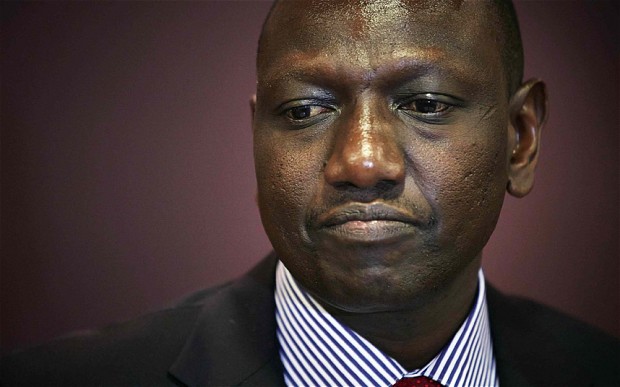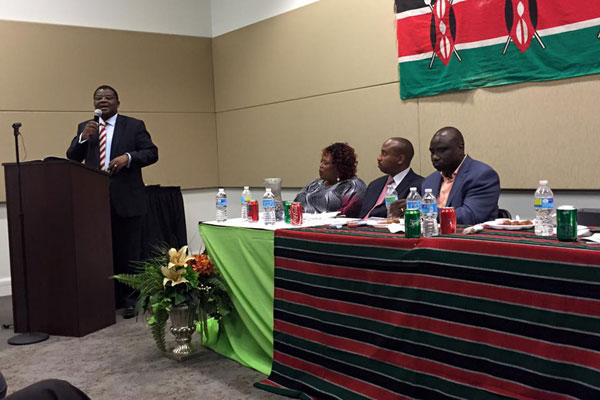Share this
DEPUTY President William Ruto has warned of a scheme to illegally nail him at The Hague by admitting prior testimony of hostile witnesses in his crimes-against-humanity trial.
In an 83-page response to ICC Prosecutor Fatou Bensouda, Ruto said the case against him had fallen apart and the prosecution now seeks to convict him using “unsworn hearsay statements” of unreliable witnesses.
Through lead counsel Karim Khan, Ruto said throughout the trial the prosecution has been unable to prove the existence of a network he allegedly used to forcefully eject Kikuyus from the Rift Valley in the 2007-08 post-election violence. He is charged as an indirect co-perpetrator.
“The membership, creation, development, and operation of the alleged “Network” are the building blocks of the OTP’s case against Mr. Ruto… its existence [the network] is essential to satisfy the contextual elements of crimes against humanity and to establish Mr. Ruto’s individual criminal responsibility,” the defence application reads in part
“It appears that evidence relating to this vital element of the OTP’s case is to be provided by unsworn, hearsay statements
Bensouda’s application, if successful, will be a game-changer in the case against Ruto and his co-accused Joshua Sang.
She calls the testimony of recalcitrant witnesses crucial to proving her case and admission or rejection would have a huge impact on proceedings
The three-judge bench led by Nigerian Chile-Eboe Osuji is to rule before July 16.
Bensouda wants ICC judges to admit directly into evidence the “significant” testimony of witnesses who pulled out of her case, some of whom recanted and refused to cooperated. She says they were intimidated or bribed by people acting on Ruto’s behalf.
But in response, Khan rubbished her statements, saying there is no evidence linking Ruto to the alleged scheme to influence witnesses.
“The OTP has failed to prove, save by hearsay and speculation, that the Scheme has any connection to or is seeking to benefit Mr Ruto,” Khan said.
He also accused Bensouda of seeking to introduce an “entirely new case about witness interference”.
“The present trial must remain firmly focused on the charges concerning the 2007 post-election violence in Kenya,” the British lawyer said
According to the prosecutor, there is sufficient evidence indicating the existence of an organised and effective scheme to persuade prosecution witnesses to withdraw or recant their evidence, through a combination of intimidation and bribery.
“The evidence establishes further that those responsible for this improper interference were, at the very least, acting for the benefit of the accused,” she says in the application filed on May 21.
In the application, Khan emphasised that in negotiating changes to Rule 68 — which allows for admission of testimony recorded outside the courtroom —ICC member states agreed the rules were not to be applied retroactively to he Kenyan cases.
He attached several media articles published after the November27, 2013, Assembly of States Parties meeting in The Hague to prove his case.
“Specifically, to enable Kenya to join the consensus, it is understood that representations were made that amended Rule 68 would not be applied retroactively nor in ongoing cases in the Kenya situation,” he said.
– See more at: The Star




















